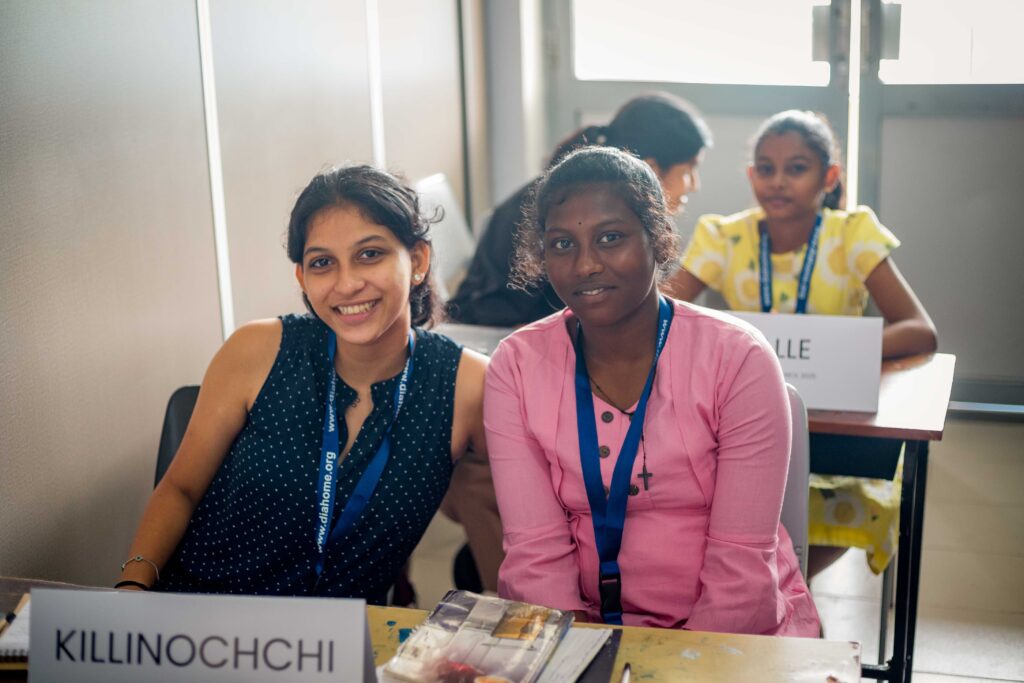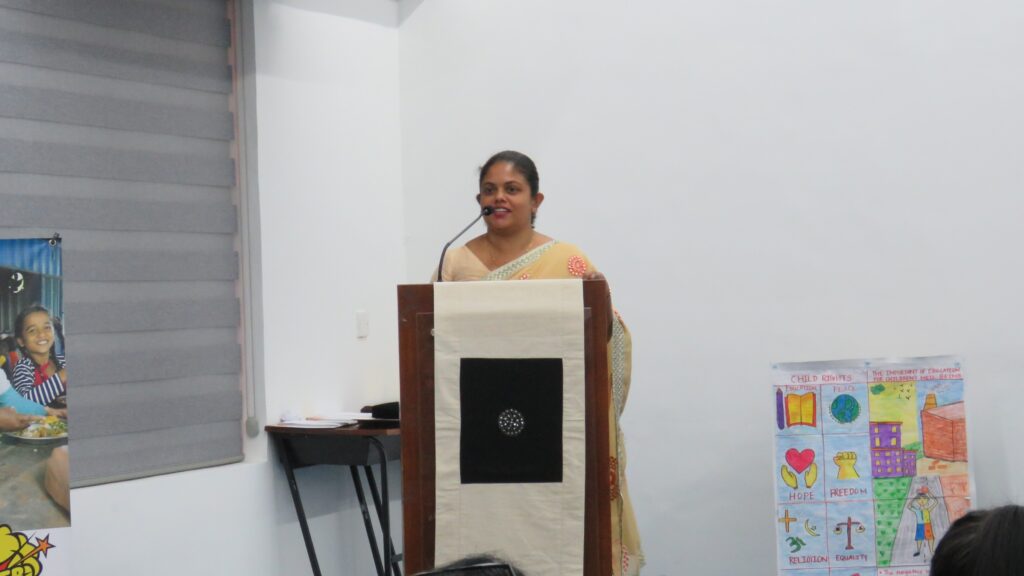
In a landmark initiative for child advocacy in Sri Lanka, Child Action Lanka (CAL) hosted the nation’s first Child Rights Council on April 5-6, 2025, at Gateway College, Colombo.
CRC represents a crucial platform for children’s participation, moving beyond traditional top-down interventions to amplify “disadvantaged children’s voices” and agency in creating social change. By providing a structured forum for children to articulate their experiences, develop leadership skills, and propose solutions, the Council addresses a significant gap in Sri Lanka’s child rights landscape – “the absence of children’s perspectives in public discourse.”
As a signatory to the Child Rights Convention, Sri Lanka holds a great responsibility to protect children’s rights, particularly for the substantial population coming from underprivileged circumstances who lack proper safety nets. Child Action Lanka, which operates eight child development centres across the island providing education, health, nutrition, and protection support since 2006, used their extensive experience with children to bring together delegates from nine diverse communities ensuring representation of underprivileged children from different demographics of Sri Lanka.
To create a structured environment where children could effectively articulate their concerns, CAL partnered with Sri Lanka Model United Nations (SLMUN). This collaboration adopted formal UN protocols to create a parliamentary setting where the young delegates served as ambassadors for their own communities, bringing authentic experiences to the discussion. The communities that children from were from Batticaloa, Mulativu, Akkarayan, Killinochchi, Nuwereliya, Bogawanthalawa, Kandy, Galle and Colombo. Experienced SLMUN delegates acted as mentors, that co-represented each location, and guided the children through the formal procedures to help them present their ideas confidently in both Tamil and Sinhala. These collaborations between mentors and mentees, resulted in fostering mutual empathy and understanding, challenging preconceptions on both sides.
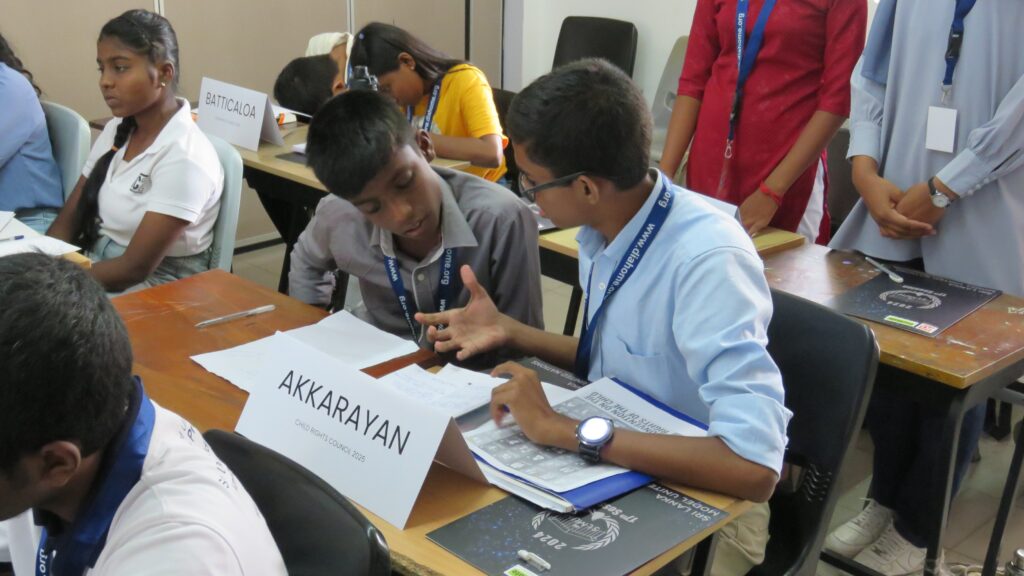
At the conclusion of the forum, the children presented a series of resolutions with experience-driven proposals that reflect the realities they face and the changes they hope to see.
At the end of the two days, the CRC came together for a meaningful close and an inspiring call to action. The ceremony showcased the powerful work the children had done to advocate for their rights. This included nine powerful declarations – one from each community, alongside compelling visual expressions that brought attention to the issues affecting their rights. Adding further depth and cultural richness, children also staged theatrical performances to highlight the challenges they face. The Council uncovered the unique struggles experienced by children across different regions.
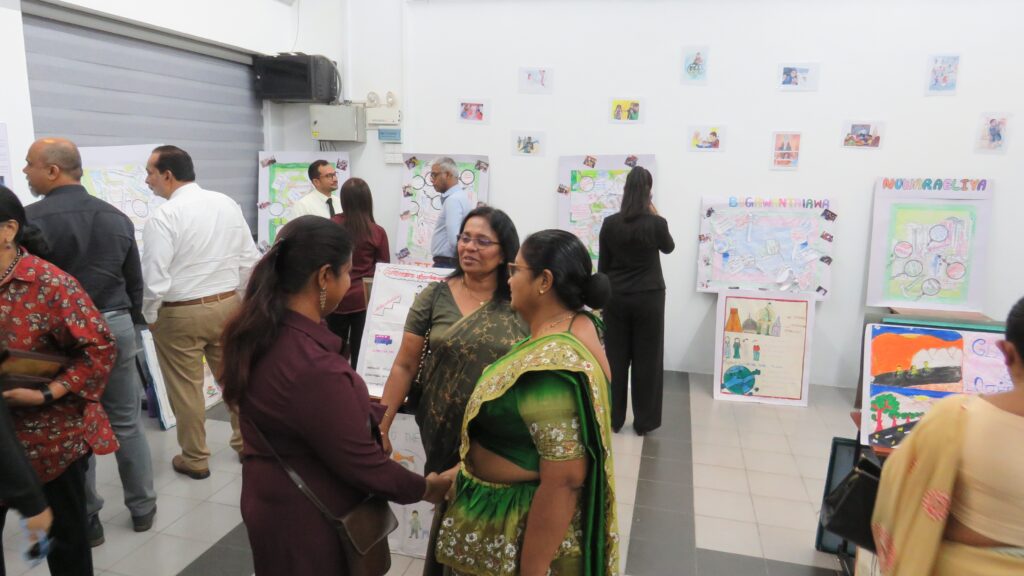
The Council is an initiative that is necessary, because the right to participate is one that is frequently overlooked from the Convention on the Rights of a Child. However, it is a right that recognizes children as active agents rather than passive recipients of care and protection. By guaranteeing children “the right to express their views freely in all matters affecting them,” the convention acknowledges children’s capacity to contribute meaningfully to discussions and decisions about their lives.
In the context of Sri Lanka’s current challenges, this initiative takes on special significance, because children experiencing poverty, educational disruption, or family hardship have unique insights into how these problems affect them and they have an opinion on how these issues should be dealt with. Their lived experiences are an invaluable resource for effective policy.
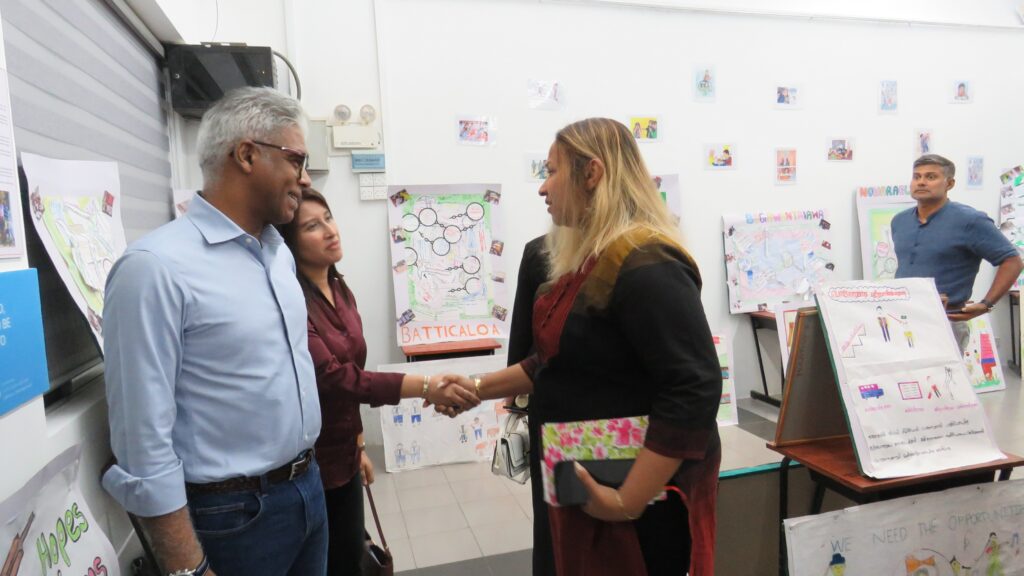
Furthermore, by articulating their views, reasoning through problems, and engaging in decision-making processes, they develop critical thinking skills, confidence, and civic responsibility. These experiences prepare them to become engaged citizens who can confidently contribute to Sri Lanka’s future development.
The Assistant Commissioner from Probations Child Care Services, Ms. N D Perera who attended the CRC, highlighted the need for their office to work with initiatives like this to create opportunities for children to “participate” and influence change. Other invitees from the Open University of Sri Lanka, UNICEF and FISD also were among those that showed their allegiance to the notion of Children should have the “Right to be Heard”.
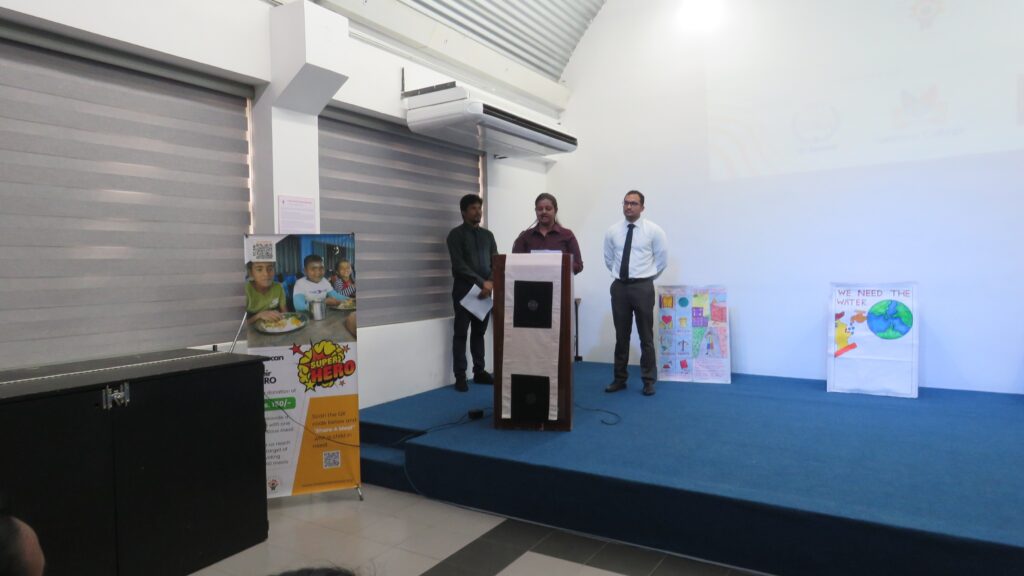
This is just the beginning; we hope that this initiative will reach more children in Sri Lanka from diverse backgrounds to work together at future councils. What emerged from this initiative was a movement of young voices united by the shared belief that change is possible when those most affected are at the centre of the conversation.
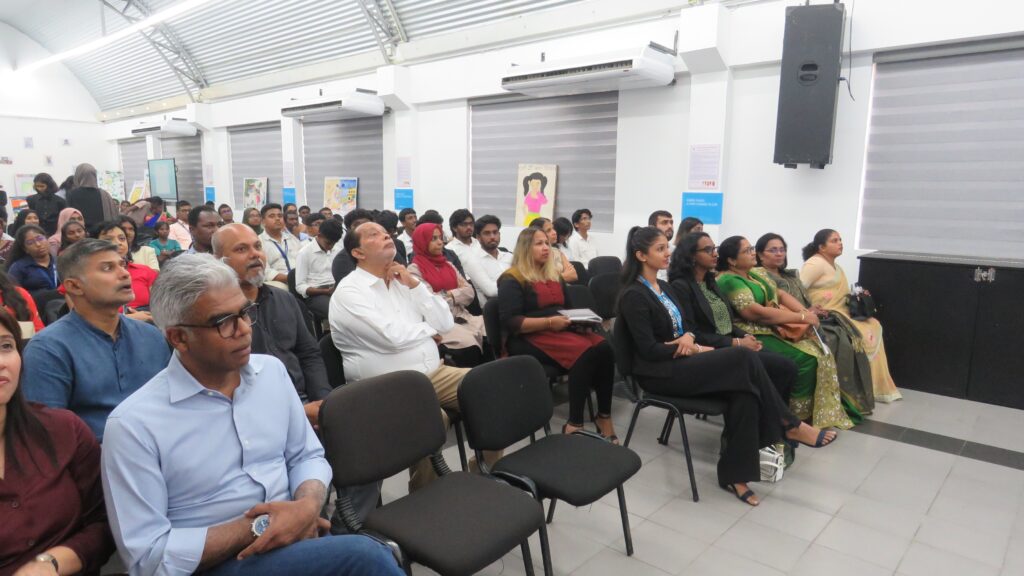
On the first row on the right side is Mithuni Jayawardana from UNICEF, Thilini Samarasekara, Business Analyst, Ernst & Young, Dr. Samanthi Jayasinghe, Open University, Sri Lanka, Dr. Vajira De Silva (Dean Open University, Sri Lanka, and Mrs. N D Perera, Assistant Commissioner of the Probations and Child Care Services of Sri Lanka.
“This was the first ever time I truly felt that I made an actual impact in a conference. The time I spent with my mentee is something I’ll be always proud of”
Prasudi Addithya – Right to Fundamental Rights
“It was a truly enriching experience to mentor and engage with underprivileged delegates, gaining valuable insight into their challenges while working collectively to advocate for their rights.”
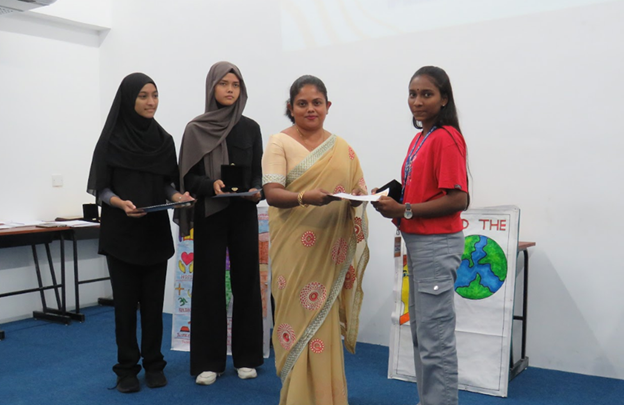
Nithiksha Elankeeran – Right to Participation
“When I heard of the true experiences of our mentee delegates, the struggle they have in securing their rights, that’s when I could draw parallels between the research and reality. Listening to their grievances and struggles really made me feel that we all should advocate for better child rights.”
Aditha Geeganage – Right to Participation
